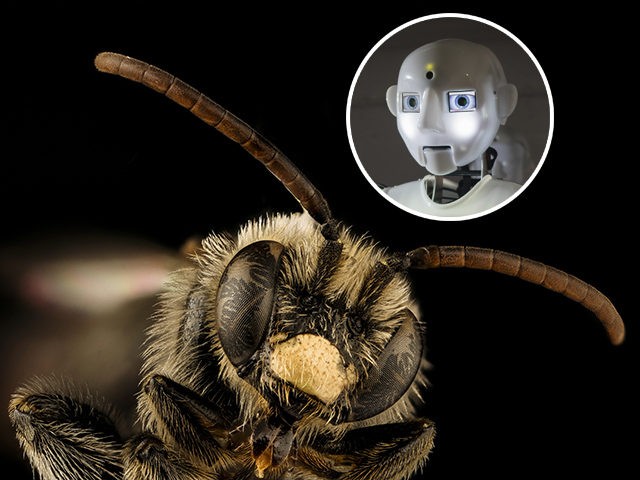An advertisement for employment on the Federal Business Opportunities website lists a job at the Department of Defense for scientists with ideas on how to use insect brains to develop “conscious robots.”
The ad, posted on the Federal Business Opportunities website, says the Department for Defense seeks concepts exploring “new computational frameworks and strategies drawn from the impressive computational capabilities of very small flying insects for whom evolutionary pressures have forced scale/size/energy reduction without loss of performance.”
According to a document explaining the opportunity in more detail to interested companies, the proposal seeks to help engineer robots that are quicker, more energy-efficient, and easier to train.
“Nature has forced on these small insects drastic miniaturization and energy efficiency, some having only a few hundred neurons in a compact form-factor while maintaining basic functionality,” the document reads. “Studying miniaturized insects may reveal fundamental innovations in architecture and computation analogous to their simultaneous simplicity, efficiency, and complex functionality.”
“Furthermore, these organisms are possibly able to display increased subjectivity of experience, which extends simple look-up table responses to potentially AI-relevant problem-solving,” it continues. “This research could lead to capability of inference, prediction, generalization and abstraction of problems in systematic or entirely news [sic] ways in order to find solutions to compelling problems.”
Proposals for the program, known as the Microscale Biomimetic Robust Artificial Intelligence Networks, or MicroBRAIN, must be submitted by February 4 while the program is scheduled to launch April 4. The winning company will receive $1 million.
The Pentagon’s Defense Advanced Research Projects Agency is known to be at the cutting age of futuristic technology and helped fund projects that led to the rise of the Internet. Some technologies reportedly in development include bullets that never miss their targets, bodysuits that give their users extreme strength, and prosthetic limbs so effective they would allow soldiers to return to frontline combat.
The U.S.’s ability to lead the world in military technology is key to the future of its status as the preeminent superpower, a status challenged increasingly by China’s plans for its own military technology. On Tuesday, an assessment released by the Pentagon concluded that in recent years Beijing has made massive technological strides in every aspect of military strength, which will eventually “enable China to impose its will in the region.”
Follow Ben Kew on Facebook, Twitter at @ben_kew, or email him at bkew@breitbart.com.

COMMENTS
Please let us know if you're having issues with commenting.